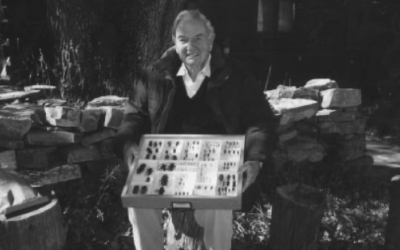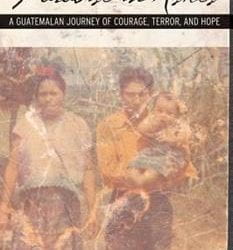Kenneth Maxwell at DRCLAS
As the new coordinator of Brazilian Studies at the David Rockefeller Center, it is a treat for me to write a few words on Kenneth Maxwell’s arrival to DRCLAS, where he is now a Senior Fellow. To borrow John Coatworth’s words from earlier this year, “his appointment promises to be a great boon to the Brazilian Studies Program.” Indeed, it has been both a boon and a boom!
In addition to his appointment at DRCLAS, Ken is now a Visiting Professor in the History Department where he is developing two new courses for the Spring of 2005: “Turning Points in Brazilian History: From Cabral to Lula,” a lecture course, and “Brazil Between Revolutions, 1776–1789,” a seminar. This Fall he is teaching the conference course “Contestation, Rebellion, and Revolution in Spanish America and Brazil.” These courses will fill a significant lacuna in Harvard’s curriculum pertaining to Brazilian history.
Ken Maxwell brings more than thirty years of experience not only from academia (having taught at Columbia, Yale, Princeton and the University of Kansas) but also from the world of foundations (having been Program Director of the Tinker Foundation and a consultant to the Ford and Hewlett Foundations) and the foreign policy realm (having served for the last fifteen years as head of Latin American Studies at the Council on Foreign Relations in New York).
He is the author or editor of more than a dozen books, including, most recently, a new edition of his classic Conflicts and Conspiracies: Brazil and Portugal, 1750-1808 (Routledge, 2004), widely known in Brazil in translation as A Devassa da Devassa, and Naked Tropics: Essays on Empire and Other Rogues (Routledge, 2003). In a review of Naked Tropics in theNew York Review of Books, the illustrious British historian Sir John Elliott described Maxwell’s extraordinary ability to show “why Luso-Brazilian history matters, and how it can and should be more effectively integrated into the broader picture of the history of Europe and the wider world.” Students and scholars at Harvard will now be able to explore this wondrous Luso-Brazilian world in Ken’s courses and research.
He has certainly not shied away from controversy. His September 2002 op-ed in the Financial Times on the likely election of a former factory worker as president of Brazil created huge commotion for going against the conventional wisdom on Lula. Maxwell, as usual, had not minced words. He wrote then: “In Latin America ‘magical realism’ has faded as a literary fad. But when it comes to Brazil, fantasy reigns supreme within the IMF and on Wall Street. How else can you explain the demonization of Luiz Inácio Lula da Silva, presidential candidate of the Workers’ Party?” Not to mention the recent high-profile dispute over his book review on Chile’s 9/11 in Foreign Affairs magazine… As Sir John Elliott put it, Ken has “always [been] something of a romantic rebel with a hard realist streak.”
The projects Ken has spearheaded over the years are too many to mention, as are the scores of young scholars he has mentored and supported along their academic and professional journeys. I am honored to be counted among them, and to be able to continue collaborating with him. Along with the many distinguished faculty and stellar students here, we very much hope to further develop and strengthen Brazilian Studies at Harvard and beyond.
A SAMPLING OF BOOKS BY KENNETH MAXWELL
- Conflicts and Conspiracies: Brazil and Portugal, 1750-1808 (Routledge, 2004), revised edition. Published in Brazil in multiple editions as A Devassa da Devassa.
- Naked Tropics: Essays on Empires and Other Rogues (Routledge, 2003).
- Mais Malandros: Ensaios Tropicais e Outros (São Paulo: Paz e Terra, 2002).
- Chocolate, Piratas e Outros Malandros: Ensaios Tropicais (São Paulo: Paz e Terra, 1999).
- The Making of Portuguese Democracy (Cambridge Univ. Press, 1995). Published in translation in Brazil and Portugal.
- Pombal, Paradox of the Enlightenment (Cambridge Univ. Press, 1995). Published in translation in Brazil (forthcoming) and Portugal.
- The New Spain: From Isolation to Influence, with Steven Spiegel (CFR Press, 1994).
- Portuguese Defense and Foreign Policy since Democratization, ed. (Camões Center, 1991).
- Spanish Foreign and Defense Policy, ed. (Westview Press, 1991).
- Portugal, the Constitution and the Consolidation of Democracy, 1976-1989, ed. with Scott Monje (Camões Center, 1991).
- Portugal: Ancient Country, Young Democracy, ed. with Michael H. Haltzel (Wilson Center Press, 1989).
- Portugal in the 1980s: Dilemmas of Democratic Consolidation (Greenwood Press, 1986).
- The Press and the Rebirth of Iberian Democracy, ed. (Greenwood Press, 1983).
Fall 2004/Winter 2005, Volume III, Number 1
Tomás Amorim is Research Associate for Brazil at the David Rockefeller Center for Latin American Studies and former Director of Western Hemisphere Affairs at the Council on Foreign Relations, where he worked with Ken Maxwell for five years.
Related Articles
The Natural World
In the late spring of 1934, towards the end of my sophomore year at Harvard College, I received a letter from Dr. Frank E. Lutz, Entomology Curator at the American Museum of Natural History in…
Disappeared: A Journalist Silenced
The cover of Disappeared: A Journalist Silenced depicts the Guatemalan journalist Irma Flaquer holding up a page in her left hand as if proofreading. Yet, her eyes are not looking at the paper…
Paradise in Ashes
Traditionally, anthropologists have divorced themselves emotionally and physically from their subjects, placing the highest priority on objectivity and the role of the anthropologist as expert…





